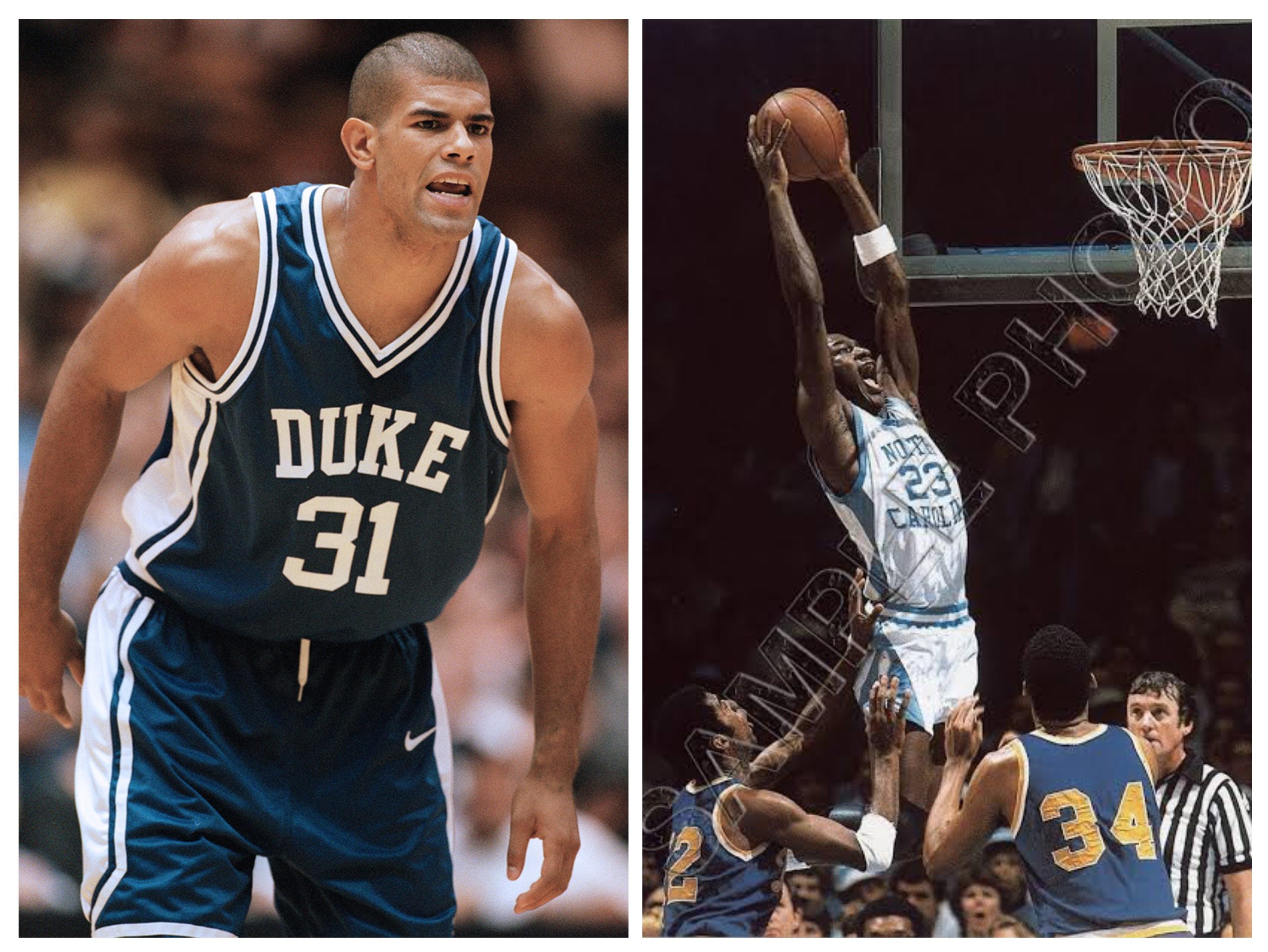In the storied world of college basketball, few debates stir passion quite like comparing two legendary figures from rival programs: Michael Jordan of North Carolina and Shane Battier of Duke. While both etched their names into NCAA history, their paths, styles, and legacies are vastly different. This comparison goes beyond NBA greatness and focuses purely on what they accomplished during their collegiate careers — and the answer might surprise many.
Michael Jordan arrived at the University of North Carolina in 1981 and made an immediate impact. As a freshman, he hit the game-winning shot in the 1982 NCAA championship game against Georgetown — a moment that would define the beginning of his rise to superstardom. Under the guidance of the legendary Dean Smith, Jordan developed into one of the nation’s top players by his junior season, earning Naismith College Player of the Year honors in 1984.
In just three years at UNC, Jordan averaged 17.7 points per game, was a two-time First Team All-American, and helped elevate North Carolina to one of the most respected programs in the country. His style was electric, his athleticism unmatched, and his clutch gene undeniable. However, his college career, while brilliant, was relatively short and did not include a long list of individual accolades compared to other NCAA legends.
Shane Battier, on the other hand, took a very different path. Spending four full years at Duke University (1997–2001), Battier became the heart and soul of Coach Mike Krzyzewski’s program. A defensive mastermind, intellectual leader, and all-around stat-sheet filler, Battier led Duke to a national title in 2001 while sweeping all the major national player of the year awards, including the Naismith, Wooden, and AP honors.
Battier’s senior year was nothing short of spectacular. He averaged 19.9 points, 7.3 rebounds, and remained the best perimeter defender in the country. He was also a three-time NABC Defensive Player of the Year — a feat rarely matched in college hoops. Unlike Jordan, who was known for taking over games with athletic dominance, Battier controlled games through strategy, leadership, and relentless effort on both ends of the floor.
One of the key arguments for Battier’s edge as a college player lies in his longevity and consistency. He led Duke to three Final Fours and capped his career with a national championship. His leadership off the court was just as impactful as his performance on it. He was revered as the ultimate “glue guy,” the player every coach dreams of — selfless, smart, and fiercely competitive.
Jordan’s greatness in college was evident, but his dominance didn’t fully bloom until he reached the NBA. Many fans forget that during his time at UNC, he was part of a well-balanced team with stars like James Worthy and Sam Perkins, and he wasn’t the focal point until his junior year. Jordan never won a National Player of the Year award until that final season, and he left college early to pursue his pro career.
Battier, meanwhile, was a proven winner in the college game and arguably the best overall player in the NCAA during his time. His accolades, championships, and impact on Duke’s success are more decorated than Jordan’s, strictly within the college context. If the conversation is about who had the greater college basketball career, Battier has a compelling case.
That said, it’s important to distinguish between the greatest college player and the greatest player who played college basketball. Jordan went on to become the greatest basketball player of all time, but in terms of NCAA legacy alone, Battier had the more accomplished college run.
So, who was the better college player? If you’re judging by impact, titles, leadership, awards, and overall body of work in the NCAA, the answer might lean toward Shane Battier. But if you consider natural talent, game-changing ability, and iconic moments, Michael Jordan’s brilliance still echoes through Chapel Hill.
In the end, it’s a clash of two kinds of greatness — the legend of what Jordan became versus the legend of what Battier accomplished. Either way, college basketball fans win.





























